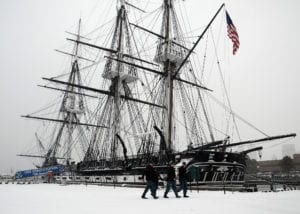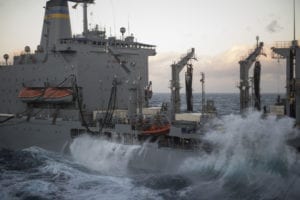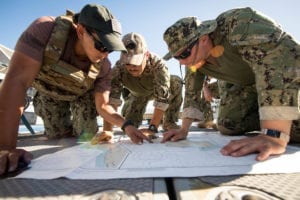Living a Lie is Hard
Donald Crowhurst of Devon, England was a desperate man.
He had failed in numerous business ventures and his present work as an inventor and dealer of navigation equipment was in deep trouble. His latest financial difficulties only fueled his fears. Fears that had haunted him since he was a boy when his father died under the strain of debt.
Hope
A glimmer of hope appeared for Crowhurst when the British Sunday Times offered the Golden Globe award to the first person to sail non-stop, solo, and single-handedly around the world.
 A second prize of 5,000 pounds was offered by the Sunday Times for the fastest time in this race.
A second prize of 5,000 pounds was offered by the Sunday Times for the fastest time in this race.
These two different prizes reflected the nature of the race, for there was no requirement for the competitors to begin at the same time.
The earliest they could sail was June 1, 1968 and the latest was October 31, 1968. Therefore, the first to finish the race would not necessarily finish with the fastest time.
With the conditional backing of a hardnosed tycoon, Crowhurst had his innovative trimaran (3-hulled) sailing boat, the Teignmouth Electron, constructed and fitted.
Donald Crowhurst had little time to test his vessel and the starting deadline fast approaching. He raced to load the supplies and equipment he needed to survive the 9-12 month journey. Despite growing concerns that he was not ready for this race, Crowhurst finally set sail on the evening of October 31, amidst great fanfare.
Problems
But from the start there were problems. Crowhurst’s lack of sailing experience made the early part of the journey slow and stressful. Then his boat began to develop leaks and he was forced to bail it by hand every day.
This all happened in the relatively peaceful waters of the South Atlantic. How could his untested boat survive the fierce waves and tempests of the “Roaring Fourties” when he passed the Cape of Good Hope, much less weather the “Furious Fifties” off Cape Horn?
Crowhurst found himself in a terrible dilemma. His ship was falling apart under the battering waves. To continue with the race seemed like suicide. Yet to turn back meant disgrace and financial ruin.
The Mistake
What did he do? Donald Crowhurst neither admitted defeat nor continued with the race. He decided to live a lie.
 After making several radio transmissions that he was making record time into the southern ocean, he cut off all further radio transmissions, leading his countrymen in England to believe he was overtaking his competitors and might win the race. In reality he had changed course and headed for the peaceful waters off the coast of South America.
After making several radio transmissions that he was making record time into the southern ocean, he cut off all further radio transmissions, leading his countrymen in England to believe he was overtaking his competitors and might win the race. In reality he had changed course and headed for the peaceful waters off the coast of South America.
His plan was to fabricate a phony log that would falsely record his journey around the world. In reality, he would remain in the safe waters of the South Atlantic for the entire period. And only re-join his competitors after they had passed him on the last leg of the journey back to England.
This charade, however, began to entrap him. One of outer hulls developed a crack and began sinking. Yet he feared breaking radio silence and calling for help, lest he reveal his true position off the coast of Argentina, when he was supposed to be in the South Pacific.
To maintain the deception he secretly crept into a South American port to have repairs made—instantly disqualifying him from the race. Then, once his boat was fixed, Crowhurst persisted in the lie and headed back out to the sea, waiting to jump back into the race.
The Result
Inevitably, the loneliness and the stress of maintaining his deception took a terrible toll on his heart and mind. Crowhurst descended into madness. His tape recordings and journal entries became increasingly bizarre.
Then he learned that all the other competitors, except for one, had dropped out of the race. This meant he would automatically win second place and bring intense scrutiny upon himself and his phony logbook–the very thing he hoped to avoid.
Fearing the disgrace of being exposed as a fraud and the anger of a nation that was already preparing for a hero’s welcome, Crowhurst took his own life. His drifting vessel was discovered some weeks later.[i]
Honesty is always the best policy–honesty with ourselves and others.
From the start Crowhurst had the opportunity to honestly admit that he wasn’t ready for this race nor did he have time to test the seaworthiness of his boat. Then, when he realized his boat would not survive in the raging waters of the “Roaring Fourties,” he had another opportunity to admit defeat.
 Instead, he chose to deceive the public by reporting false positions while waiting out the race off the coast of Argentina. Then, when an emergency forced him to stop for repairs, disqualifying him from the race, he kept it a secret and pursued his deception. All this time he had a loving family who were sick with worry and yearned for his return.
Instead, he chose to deceive the public by reporting false positions while waiting out the race off the coast of Argentina. Then, when an emergency forced him to stop for repairs, disqualifying him from the race, he kept it a secret and pursued his deception. All this time he had a loving family who were sick with worry and yearned for his return.
Crowhurst feared the truth, but it was the lie that destroyed him.
If you are caught in such a dilemma, confess your sins to God and seek His grace and help. God will not abandon you and He will give you the strength to face the truth; but you will find that deception is the terrible burden and that truthfulness is liberating.
PRAYER:
Dear Father in heaven, You are well acquainted with my dark side and my flaws. Yet You love me, accept me, and promise to never forsake me. Help me, then, O Lord, to be truthful, transparent, and honest in all my words and deeds. Amen.
[i] (Information from the movie documentary, Deep Water, directed by Louise Osmond and Jerry Rothwell, 2006)







